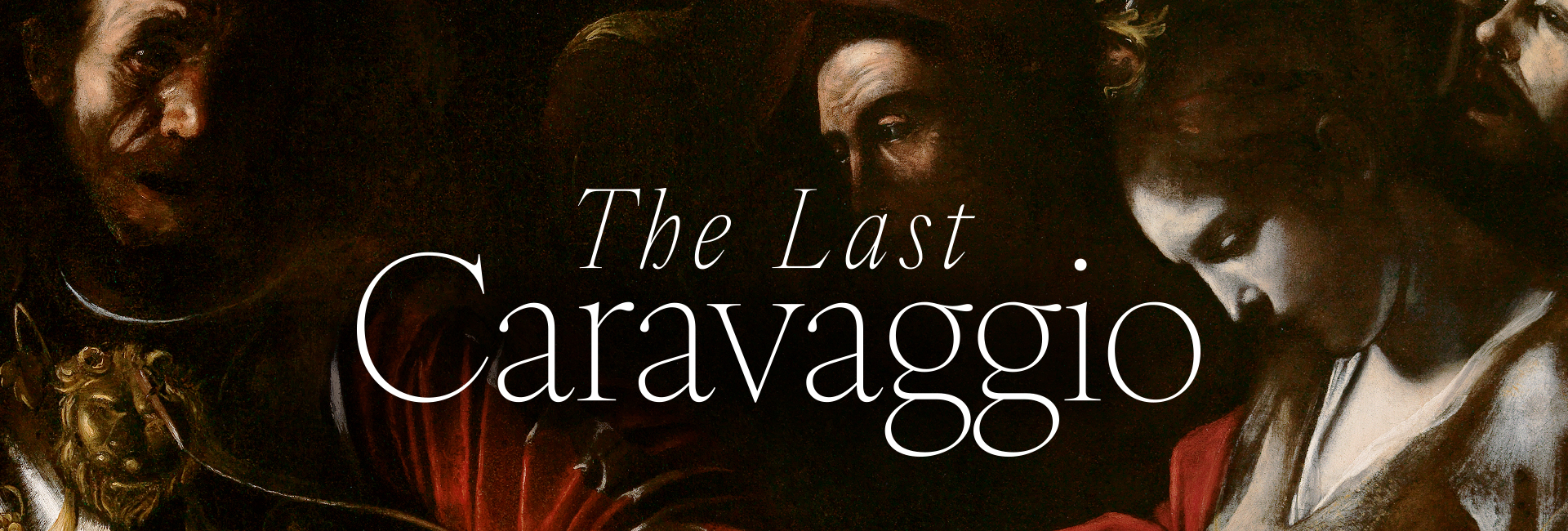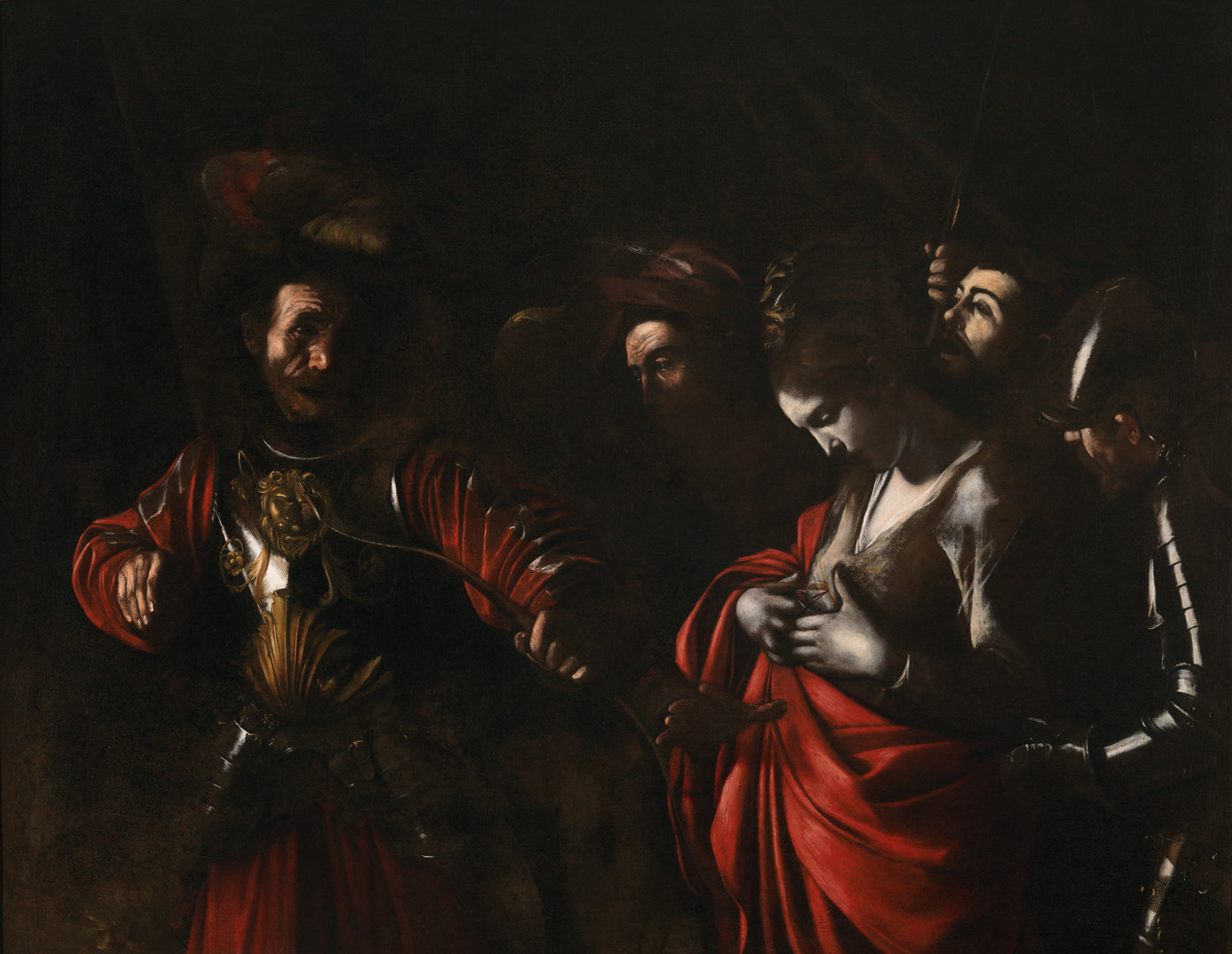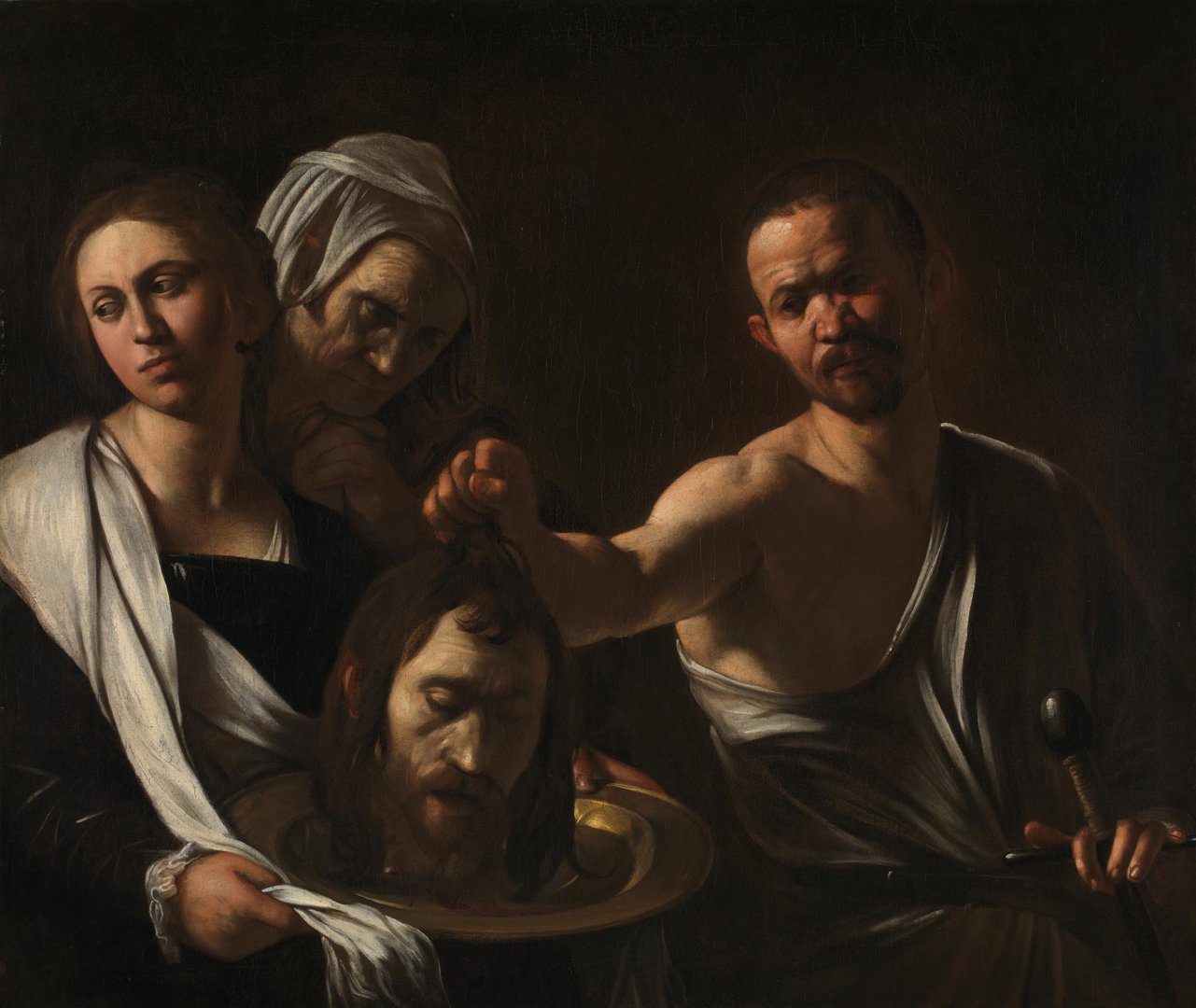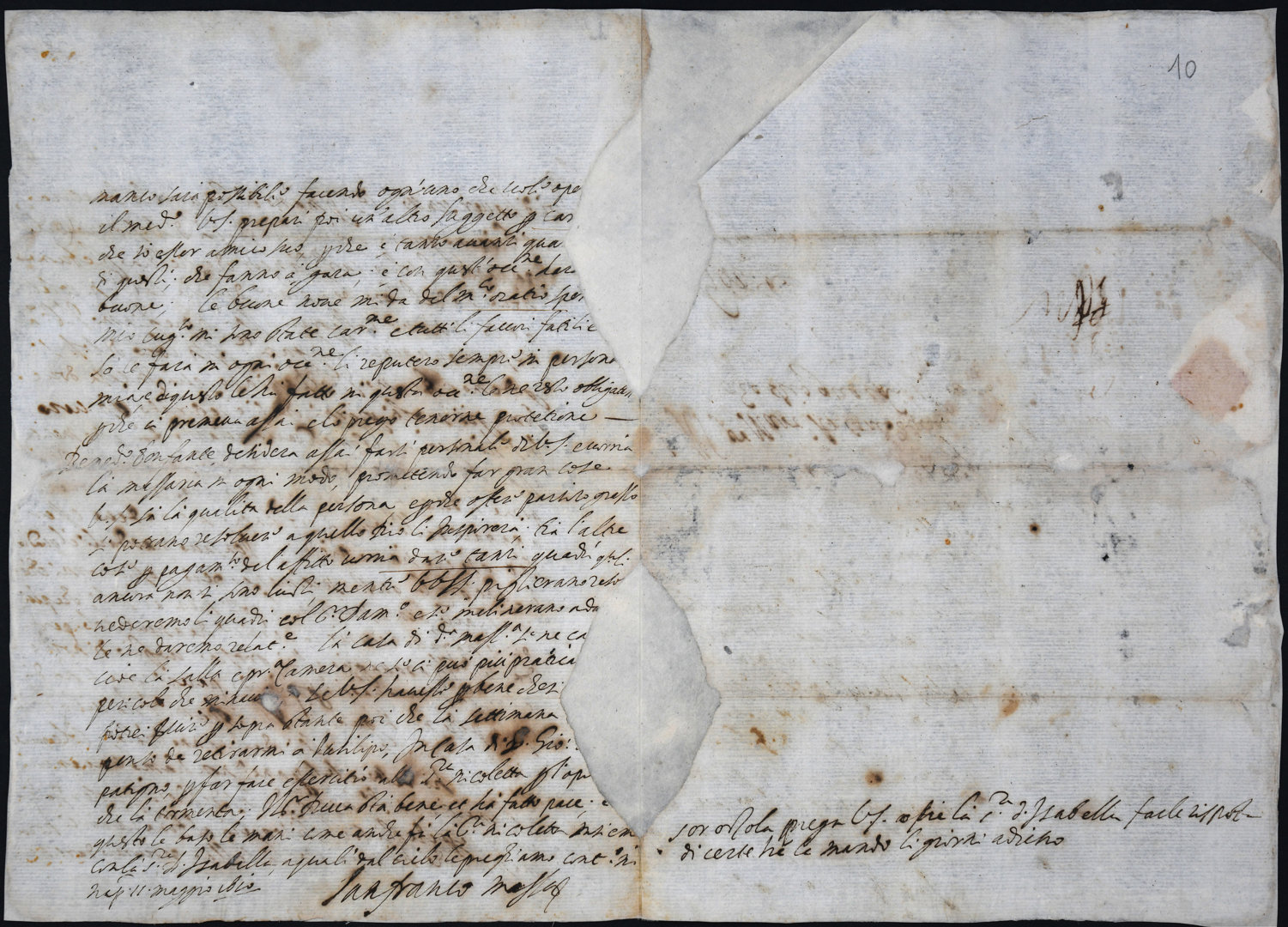May 1610. Caravaggio is in Naples working on the last picture he'd ever paint.
Two months later, he died in mysterious circumstances. But it was during his final tumultuous years that Caravaggio made some of his most striking works.
His characteristic style includes tightly cropped scenes and dramatic lighting. He used real models with dirty feet and grimy fingernails.
Few paintings are better placed to tell the story of Caravaggio’s final years than his last-known work, 'The Martyrdom of Saint Ursula' (1610, Gallerie d’Italia, Naples). The painting is coming to London for the first time in 20 years.
We witness violence at uncomfortably close quarters. Caravaggio shows us an intricate interplay of guilty and innocent hands. And his own self portrait looks on, helpless.
We'll display this painting with the letter that describes its creation (Archivio di Stato, Naples), and our own late Caravaggio, 'Salome with the Head of John the Baptist' (about 1609–10).
In our Bicentenary year, you’re invited to contemplate this masterpiece. Explore the troubled end of Caravaggio's life, the stories of Ursula and Salome, and reflect on violence today.








